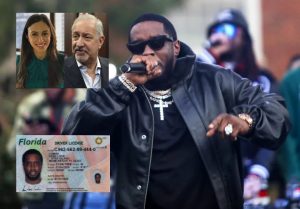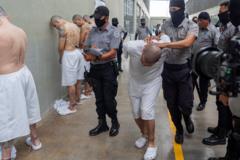The landscape of narcocorridos is changing as artists face pressure to denounce themes glorifying violence and criminality, leading to a pivotal cultural moment in Mexico.
**Shifting Tides: The Decline of Narco Music in Mexico Amid Legal Pushback**

**Shifting Tides: The Decline of Narco Music in Mexico Amid Legal Pushback**
As Mexican cities clamp down on drug-themed music, artists are reassessing their contributions to cultural identity and crime perception.
Luis R. Conriquez, renowned for his narcocorridos, performed recently in Texcoco but faced backlash after announcing the omission of popular songs glorifying drug cartels from his setlist. This decision reflects a growing movement across Mexico to phase out music that critics argue glorifies the violence stemming from organized crime.
In the wake of fierce criticism, the crowd reacted negatively to Conriquez’s announcement, expressing disappointment by booing him and destroying his equipment post-performance. "It feels bad not being able to sing what people want to hear," he lamented in a social media post, explaining his shift towards a principle prioritizing a “zero corridos” approach.
This shift comes as Mexican artists navigate the pressures of both a national identity shaped by popular culture and the chilling impact of drug-related violence. With increasing calls for accountability from both citizens and regulatory bodies, musicians like Conriquez are now exploring ways to tone down their lyrics and adapt their performances to align with new legal standards banning songs that potentially glorify crime.
As Conriquez prepares for a U.S. tour, his intention to modify his setlist according to local regulations marks a pivotal moment in the narcocorrido genre, highlighting the broader cultural conversations around music, identity, and crime in Mexico. The once-celebrated genre now faces an uncertain future, caught between immense popularity and mounting legal and social scrutiny.
In the wake of fierce criticism, the crowd reacted negatively to Conriquez’s announcement, expressing disappointment by booing him and destroying his equipment post-performance. "It feels bad not being able to sing what people want to hear," he lamented in a social media post, explaining his shift towards a principle prioritizing a “zero corridos” approach.
This shift comes as Mexican artists navigate the pressures of both a national identity shaped by popular culture and the chilling impact of drug-related violence. With increasing calls for accountability from both citizens and regulatory bodies, musicians like Conriquez are now exploring ways to tone down their lyrics and adapt their performances to align with new legal standards banning songs that potentially glorify crime.
As Conriquez prepares for a U.S. tour, his intention to modify his setlist according to local regulations marks a pivotal moment in the narcocorrido genre, highlighting the broader cultural conversations around music, identity, and crime in Mexico. The once-celebrated genre now faces an uncertain future, caught between immense popularity and mounting legal and social scrutiny.



















